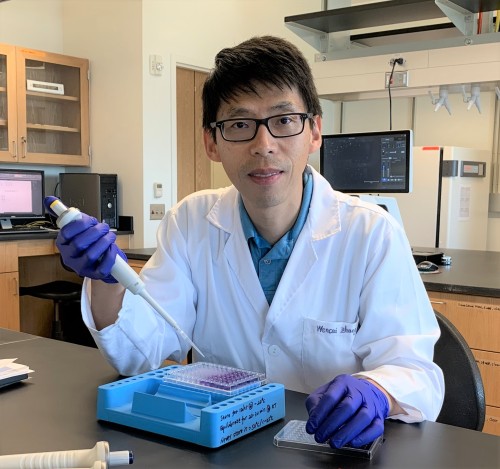
With the support, I can utilize cutting-edge metabolomic and whole transcriptomic approaches to advance our understanding of the interaction of metabolite-miRNA in driving tumor initiation.
What inspired you to focus your career on thoracic oncology?
The lung is a metabolic organ. I am curious initially how cellular metabolism mediates oncogenic transformation. Discovering the interactome of hardware (oncogenes) and software (oncometabolite or oncogenic non-coding RNAs) in lung cancer inspires me to focus my career.
How has receiving an ILCF Research Grant contributed to the advancement of your research?
Receiving the Young Investigator Grant synergizes with my current research focus. With the support, I can utilize cutting-edge metabolomic and whole transcriptomic approaches to advance our understanding of the interaction of metabolite-miRNA in driving tumor initiation.
What are the next steps of your research? Of your career?
My research will step forward to understand how cellular metabolism cooperates with oncogenes driving early-stage lung cancer formation. I am collaborating with world-class leaders in lung cancer to train a new generation of cancer researchers. With the teamwork, I hope to work together with our expertise to cure lung cancer.
How are your next steps influenced by the outcomes of the project funded by your ILCF Research Grant?
The funded project’s outcomes broadened my vision of targeting tumor formation. The metabolites mediating the malignant formation process are finely tuned by microRNAs (small non-coding RNAs). We focus on the interactome of microRNA-metabolism to find a better solution to target lung cancer.
What are some of your passions outside of work?
I enjoy playing tennis because of the beauty and elegance of the ball movement. I play tennis with friends and family as a social activity.
